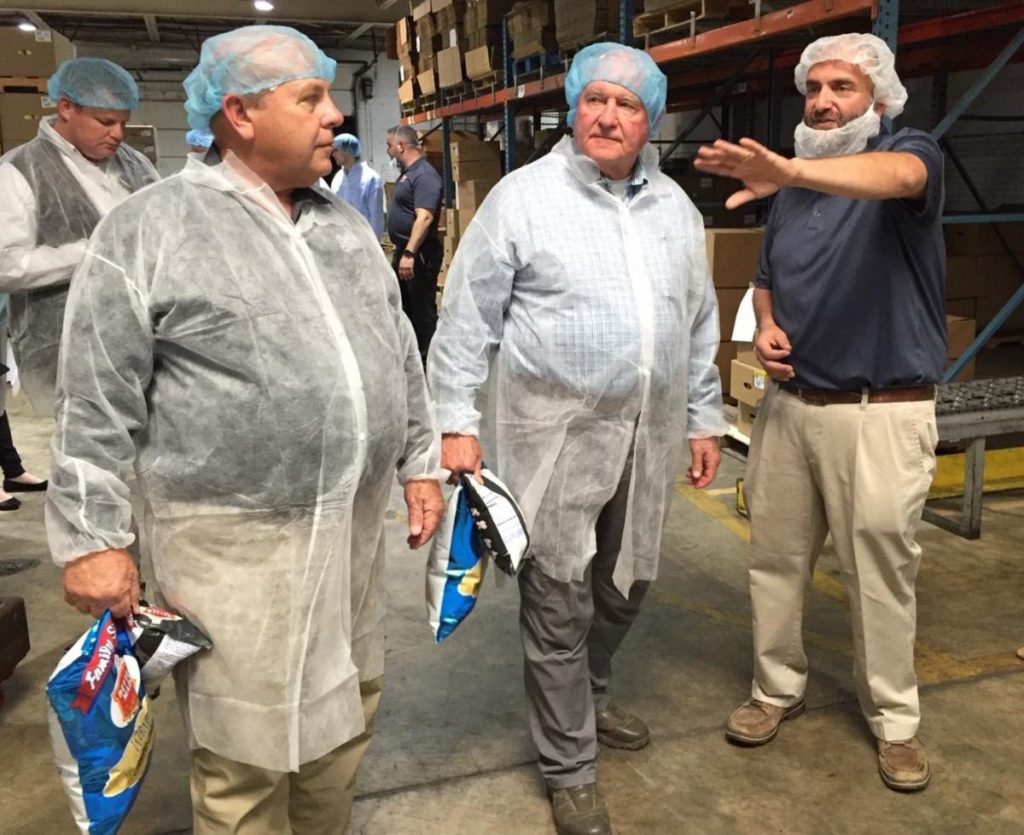Apr 22, 2020Column: Food relief effort a step, but not nearly enough
On April 17, U.S. Secretary of Agriculture Sonny Perdue announced USDA’s first relief effort called the Coronavirus Food Assistance Program (CFAP). The $19 billion relief effort included $2.7 billion in financial support targeted to the fruit and vegetable industry.


Our statement that evening reflected that reality: “The U.S. potato industry is $4 billion annually with 60% of that total involving foodservice. Potato growers appreciate Secretary Perdue’s rapid action intended to stabilize family farms whose survival is threatened due to the mandated foodservice shutdown. Today’s announcement is a down payment on those efforts that will require additional resources and flexibility to deliver the necessary relief for our great potato industry.”
As we held a series of calls that evening and over the weekend with USDA officials and industry, it became apparent that various elements of the plan require improvements or additional resources in order to provide relief for the potato industry. These include:
1) Broadening the scope of producers eligible for direct payments to include representative potato producers impacted due to the food service shutdown.
Given the unique nature of the grower/processor relationship, we need to ensure that USDA’s process for documenting losses is inclusive and will allow for impacted growers to be eligible for the program.
The complex nature of these relationships led us originally to push USDA to employ a simple flexible process for verifying claims. We continue to believe this is the best option, and recommend this process for verifying claims:
- The grower would self-certify their economic injury with the Farm Service Agency; and,
- The FSA County Committee would validate that claim either before or after a payment was made. These local County Committees would have the best knowledge of specific production practices in various areas.
2) Ensuring that payment distributions are fair, equitable, and achieve the intended goal of providing relief to family farms involved in the potato industry.
Potatoes are a high cost crop to plant. Therefore, USDA needs to structure payments that offer the opportunity for real relief. The $125,000 per commodity maximum payment does not offer that kind of support. It is 50% of the size of the trade mitigation payments provided over the past few years, but today’s crisis is arguably much greater in scope and impact.
3) Rapidly purchasing potatoes in volumes necessary to provide them to needy recipients and ensuring that the supply chain operates efficiently, so damage to both the current (2019 crop) and the upcoming (2020) crop are sufficiently mitigated.
USDA has indicated that they will only purchase potatoes based upon the demand they receive from food banks and related organizations. Though these recipients should be fully supplied first, purchases cannot stop there. USDA needs to purchase surplus potatoes in substantially greater volumes that clear out the oversupply of the 2019 crop that continues to build due to the food service shutdown.
USDA has a window in the short term where they can mitigate the impact on the 2020 crop if they act aggressively through these purchases. However, relying upon food banks to provide the demand lost by food service cannot meet that goal. If USDA maintains this stance, the impact of this crisis will continue into at least late 2021.
In terms of the food bank purchase program, potatoes need to be fully eligible. Additionally, flexibility should be provided on specifications in order to ensure that as many surplus potatoes can move through the system as possible.
Next steps
NPC, the state organizations, and other agriculture associations across the country are working with individual Congressional delegation members to urge the White House to remove the unusually low payment cap on relief for farmers. A bicameral (House and Senate) letter is being circulated for signatures across the livestock, dairy, and produce sectors that will be sent to the White House this week.
We also continue to push USDA to purchase potatoes more aggressively than they indicated on Friday. It makes great sense that the oversupply of potatoes, in part, could be utilized for livestock feed or other purposes once food bank demand has been satisfied.
Additionally, we are meeting with USDA and the Office of Management and Budget to press them to ensure potato producers’ unique relationships with processors will be recognized under the eligibility requirements for the direct payment program. Part of successfully telling that story and getting those resources includes quantifying the overall impact of this crisis on our industry. Please notify your state organizations of specific impacts upon your operations, so we can effectively communicate those numbers to our officials.
Finally, it is assured that Congress and the Administration will need to work on multiple future relief bills (Phase 4, 5, etc.). These bills must include substantial resources for agriculture broadly and the potato industry specifically that recognize and effectively mitigate the impact of this government-mandated shutdown. NPC and your state organizations will be working constantly with the various delegation members to secure and target these resources where they need to be.
Please visit NPC’s Coronavirus Update page for new resources and information as they become available.
Top photo: Secretary of Agriculture Sonny Perdue, center, visits the Better Made Snack Foods facility in Detroit in 2019. Photo: Michigan Potato Industry Commission















